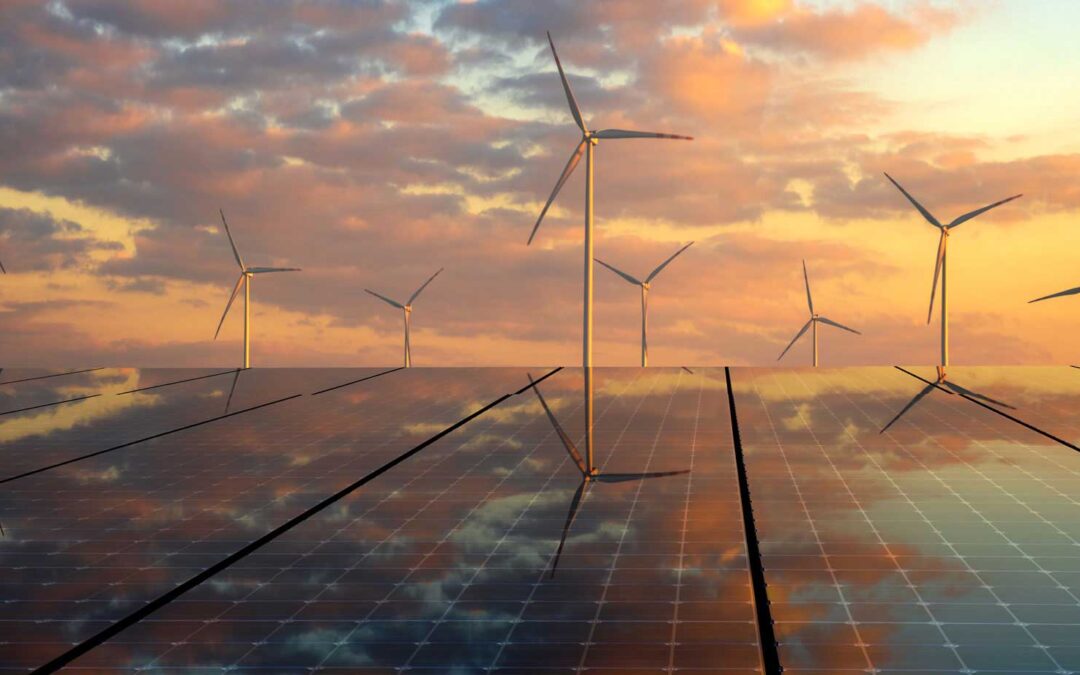
by Michael Vickerman | Aug 19, 2020 | Policy, Public Service Commission, RENEW Wisconsin
In June, the Public Service Commission requested public comments on the latest iteration of its Strategic Energy Assessment (SEA), a study that profiles the state’s electric power industry and surveys how the economic and regulatory landscape will likely evolve over the next six years. The PSC is required by law to update its assessment every two years. The PSC gave the public until August 14th to file comments to the draft study.
In contrast to previous renditions of this process, which were quiet affairs, this year’s draft assessment (Docket 5-ES-110) elicited a veritable torrent of comments from the public. This unprecedented volume of responses reflects a broadening understanding that electric providers are making significant changes to their resource mix to reduce carbon emissions, and that this clean energy transition must continue. With the PSC approving a significant quantity of zero-emission generation in other proceedings, it is heartening to see so many individuals and organizations encouraging the PSC to do more of the same.
Unfortunately, the draft SEA shies away from acknowledging the market realities and environmental constraints that are, today, driving utility procurement decisions quite clearly toward clean energy. This did not go unnoticed. As RENEW noted in its comments, the draft SEA is distinguished more by what is absent from the discussion than by the contents within it.
Chief among the blind spots is the document’s complete silence on climate science and the Governor’s Executive Orders #38 and #52, which enumerated a number of initiatives and goals to put the state on a zero-carbon pathway. Issued in August 2019, Executive Order #38 created a new office within state government, the Office of Sustainability and Clean Energy (OSCE). Over the last nine months, OSCE has been working closely with the Governor’s Task Force on Climate Change, assisting this body in formulating strategies for tackling the effects of climate change in Wisconsin.
OSCE director Maria Redmond submitted comments consisting of recommendations for improving the usefulness and educational value of the SEA.
While reporting on what the utility providers are doing, the PSCW should capitalize on the opportunity to integrate several multi-sector, local, state, and regional efforts to reduce energy consumption, transition to clean energy. The SEA compliments the work of the OSCE and could be a useful tool to measure and verify progress towards meeting our carbon reduction goals. The SEA could also be used to directly address and report on Wisconsin’s progress on reducing the impacts of climate change. As currently written, the assessment does not analyze the overall risks (business as usual) versus the benefits of the transition to a clean energy economy or addressing climate change.
RENEW struck a similar theme in its concluding remarks.
We encourage Commission staff to engage the newly created Office of Sustainability and Clean Energy in a productive way, and find other sources of information beyond the utility responses to data requests. Certainly, RENEW would, if asked, gladly assist Commission staff in the gathering of relevant information prior to the document-drafting process. As noted in the introduction, the Strategic Energy Assessment is the closest thing in the state to a public planning process involving the state’s electric providers. It’s crucially important that this and future iterations of the SEA weave in policy threads that will illuminate pathways to achieving the clean energy goals and objectives that numerous public and private entities in Wisconsin have adopted.
The breadth and volume of comments submitted to the PSC is directly attributable to RENEW’s work to engage stakeholders and the public on the current SEA, highlighted by a webinar organized and led by RENEW policy director Michael Vickerman. The webinar on July 14 presented a primer on the draft SEA, and provided suggested points that could be raised in comments. More than 50 individuals representing numerous organizations in Wisconsin and beyond registered for the webinar. The slide deck prepared for the webinar can be found here.
In 2018, a mere two weeks elapsed between the comment filing deadline and the issuance of the final SEA. This time around, we expect more significant re-writes and additions to the draft.
RENEW thanks the organizations and individuals who weighed in with comments. We are hopeful that the public response to the draft SEA will materialize into needed improvements in the final document.
by Jodi Jean Amble | Aug 11, 2020 | RENEW Wisconsin
RENEW Wisconsin has named Heather Allen as Executive Director. Ms. Allen was hired as RENEW’s Program Director in July 2018 and has been acting as Interim Executive Director since March, when RENEW’s prior Executive Director, Tyler Huebner, was appointed by Governor Tony Evers to the Public Service Commission of Wisconsin.
Prior to joining RENEW Wisconsin, Ms. Allen worked as the Legislative Analyst for the City of Madison’s Common Council. She brings to RENEW a cumulative 15 years of experience developing policies and programs at the Clean Lakes Alliance, Natural Resources Defense Council, National Oceanic and Atmospheric Administration, and the City of Madison.
“With Heather at the helm, RENEW is well-positioned to steer Wisconsin’s clean energy transition on a path towards a broader distribution of its benefits,” said Michael Vickerman, Policy Director at RENEW Wisconsin. “As state and local governments, schools, businesses, farmers, tribes, affinity groups, and individuals become more invested in clean energy, RENEW will be working with them to realize a future in which renewable energy is available and accessible for anyone who desires it.”
“Heather is an ally for solar installers and customers across Wisconsin,” Burke O’Neal at Full Spectrum Solar added. “She is dedicated to improving access to renewable energy for homeowners, businesses, local governments and nonprofit organizations.”
“I’m thrilled to congratulate Heather Allen on becoming Executive Director of RENEW Wisconsin,” said Deb Erwin, Manager, Regulatory Policy, Xcel Energy. “As a national leader in the clean energy transition, Xcel Energy knows the importance of working together with partners to make our vision a reality. We look forward to working with Heather to bring all the benefits of the clean energy transition to Wisconsin.”
Eric Udelhofen, RENEW Wisconsin Board of Directors Chair and Project Developer at OneEnergy Renewables, a RENEW business member added, “The RENEW Board is thrilled that Heather Allen has accepted the offer to become our new Executive Director, and is very excited to continue working together with Heather to advance RENEW’s mission of advancing renewable energy in Wisconsin. Heather is a fierce advocate for our issues and will be able to step in and be an effective advocate and leader from day one.”
Ms. Allen said, “As we look ahead to the next five years, there is so much opportunity for clean energy. Price drops in wind and solar and public interest in generating clean emission-free electricity have paved the way for growth and innovation in new technologies. Electric vehicles, batteries, and demand response solutions are reshaping the energy landscape to allow for a more responsive, sustainable, and affordable grid.”
“We are committed to increasing equitable access to the benefits of renewable energy so that all Wisconsinites have a clear stake in our energy system. I envision a future in which Wisconsin becomes a renewable energy leader and a model for other states.” She added, “This is the moment to seize the opportunity to shift towards renewable energy, keep billions of dollars in Wisconsin, and reinvest in our local economies.”
Ms. Allen is the producer and host of Wisconsin Energy Broadcast (WEB) on WORT 89.9 FM, a monthly broadcast, where she discusses clean technology and renewable energy in the Midwest.
Ms. Allen received a Bachelor of Science in Biological Aspects of Conservation and International Relations from the University of Wisconsin – Madison and Master of Arts in International Environmental Policy from Middlebury Institute of International Studies.
Other advocates and industry professionals also expressed their congratulations on Ms. Allen’s appointment:
It is always a pleasure to work with Heather. Her gift is being able to draw in people with many different perspectives and experiences. She continues to expand the coalition of allies who can advocate effectively for clean energy in Wisconsin.
Jennifer Giegerich, Government Affairs Director, Wisconsin Conservation Voters
Heather Allen’s understanding of the multifaceted challenge of climate change mitigation clearly drives her dedication to achieve climate justice. As a physician advocating for the health of my patients via equitable climate change mitigation and adaptation solutions, I have found Heather’s expert understanding of large-scale renewable infrastructure development to be invaluable. Heather has also always been a pleasure to work with, demonstrating unparalleled passion, prompt and professional communication and collaboration skills, and an enduring work ethic. I am thrilled to hear of her permanent appointment as Executive Director of RENEW Wisconsin.
Andrew Lewandowski, Pediatrician, GHC-SCW, Steering Committee Member, Wisconsin Environmental Health Network
Heather has been a delight to work with as Wisconsin Interfaith Power & Light has collaborated with RENEW through her to bring a message of Good News to people of faith who care about sustainable energy.
John Helt, Former Board President, WI IP&L
I’ve been fortunate to work with Heather Allen for more than four years now and I know that she’ll be an outstanding Executive Director for RENEW. Heather is smart, diligent, responsible, hardworking, a great communicator, and has so much integrity! Congrats to RENEW on a great hire and a bright future.
Keith Reopelle, Former Director of Dane County’s Office of Energy and Climate Change
Excellent choice, Renew Wisconsin continues Forward in very capable dedicated hands! Congratulations Heather!
Bob Bishop, Farmer
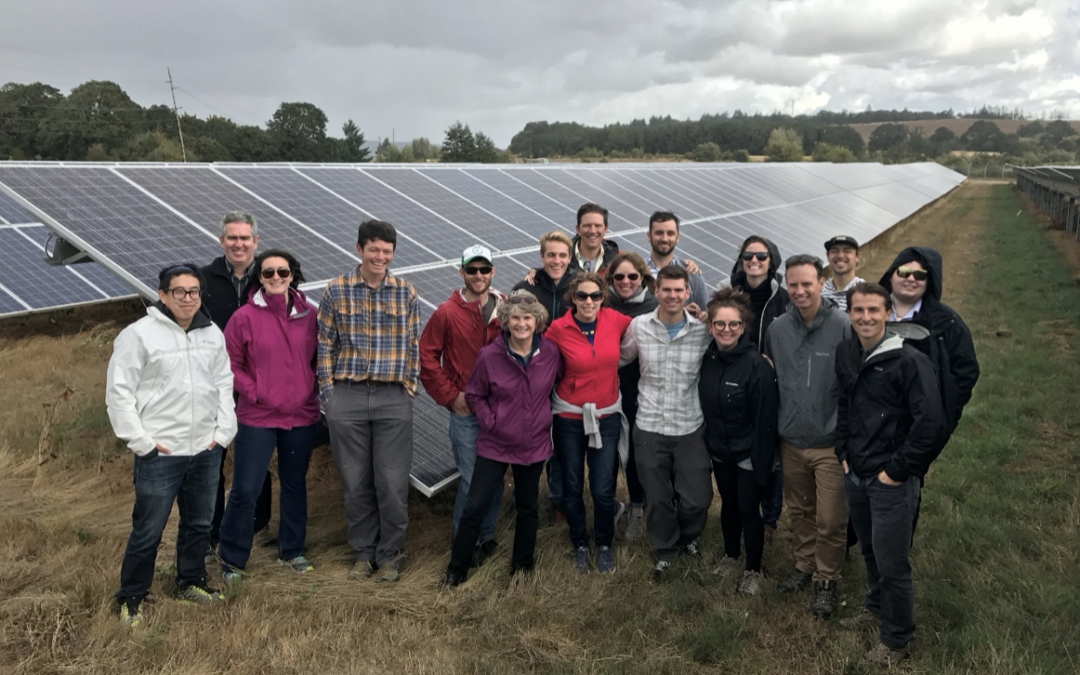
by Guest Blog | Aug 5, 2020 | Community, Renewables, Solar
Submitted by Bill Bailey of Cheq Bay Renewables
Two Ashland, Wisconsin nonprofits are installing solar photovoltaic systems on their facilities. The nonprofits are household names in the Chequamegon Bay area of western Lake Superior – the New Day Advocacy Center and The BRICK Ministries.
New Day Advocacy Center provides free and confidential domestic violence and sexual assault victim services, including shelter and other crisis intervention services. They also provide community prevention education to culture respect and lasting change in community behavior – No More Abuse!
The BRICK’s mission is to compassionately help people in need. They are best known for their Food Shelf Program, but also provide emergency financial resources and referrals with a focus to keep people in their homes through their Benevolence Program
Both organizations have considered solar installations in the past to reduce utility expenses and to generate clean energy. But as each nonprofit had roofs which needed repair, and had purchased or recently moved into newly renovated facilities, they were both financially strained. The solar would have to wait. That was until Eric Udelhofen called from OneEnergy Renewables, a community and utility scale solar project developer based in Seattle, Washington with a satellite office in Madison.
OneEnergy had 35 high-quality, modern solar modules they wanted to donate to a worthy Ashland nonprofit. OneEnergy was the solar developer on the recently constructed 1-megawatt Xcel Energy community solar garden in Ashland. The modules were “bones,” extra parts, left over from purchasing or shipping in bulk quantities, and OneEnergy wanted something good to come from their surplus.
Solar modules represent roughly 15% of the cost of a small solar project. The other 85% is comprised of inverters, racking, miscellaneous additional materials and labor. Jolma Electric of Ashland, who was also involved in the installation of Ashland’s community solar project, joined the project agreeing to perform its installation services “at cost,” and the total project cost was reduced by 22%. Then C&S Design & Engineering, also from Ashland, reduced their engineering cost by 50%, further lowering the total installation price.
Additional funding was needed to cover the remaining balance of the installation. The New Day Board was the first of the two projects to vote to move forward with raising the remaining funds. A GoFundMe site was set up and $6,500 was raised in two weeks. In addition, $3,400 of private checks were received designated for the solar installation. Of the nearly $10,000 of cash donated to the New Day rooftop solar project, OneEnergy employees donated $6,000.
There is another story here. At the core of OneEnergy’s business model is a commitment to serve the communities in which they operate, along with a strident belief that the transition to clean energy will help create a more sustainable and equitable global economy. Not only did the corporation donate the solar modules, but employees stood behind this commitment and donated their personal cash. The status quo of corporate America as an entity has become isolated from their communities. OneEnergy, as well as Jolma Electric and C&S Design and Engineering, are demonstrating an alternative approach, modeling a more enlightened view about the role of companies in society and a commitment to be the change that they wish to see in the world.
So New Day’s project is off and running and now The BRICK has begun its fundraising campaign. An awning style installation was designed by Jolma Electric and C&S Design & Engineering. The donated modules will fill half the south façade of the facility with opportunity to fill the remainder if or when funds allow. The full project would cost $31,990 of which $20,490 has already been raised. A GoFundMe site has been set up for The BRICK to fund the remaining $11,500. If you can help go to: https://bit.ly/3k0IeLm to donate.
During this time of COVID-19, it is encouraging to see that community-building defeats fear, love overcomes hatred, and clean energy offsets fossil fuels. With the support of this community, these two nonprofits, New Day Advocacy Center and The BRICK, are choosing the alternative path, the “culture of service.”
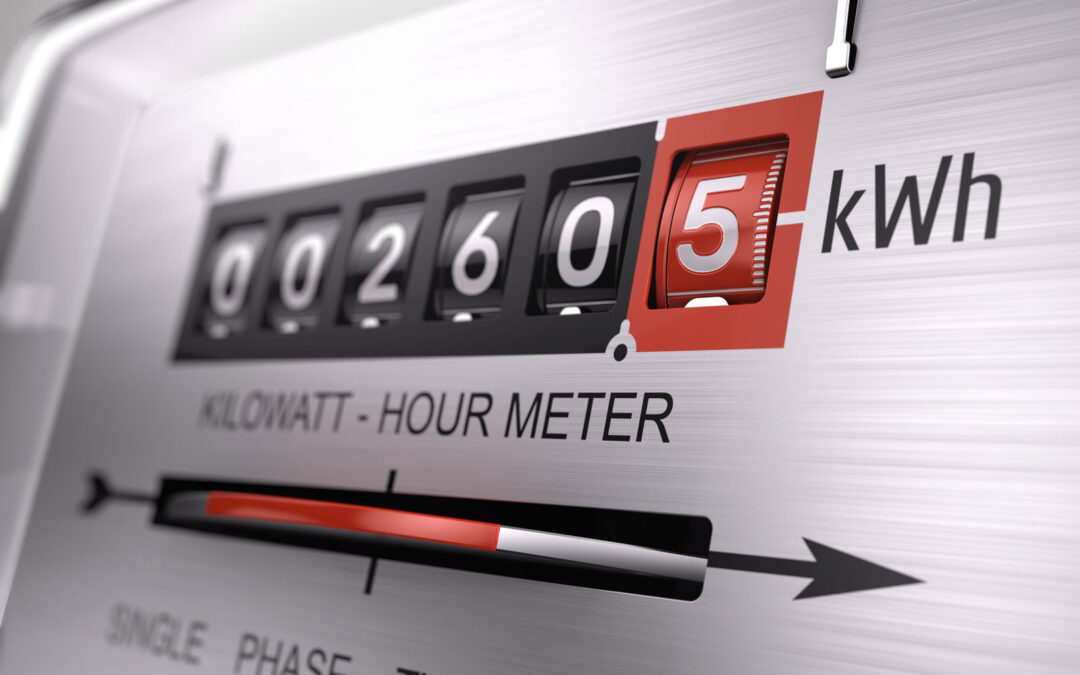
by Heather Allen | Jul 21, 2020 | Advocacy, Policy, RENEW Wisconsin, Renewables, Solar, Utilities
Last week the Federal Energy Regulatory Commission (FERC) dismissed a challenge to state control of net metering. The unanimous decision made on Thursday, July 16, 2020 was great news for RENEW Wisconsin and our members. Homeowners, business and manufacturers that generate their own solar energy can now breathe easy, knowing that the oversight for net metering policy remains in the hands of Wisconsin’s own Public Service Commission.
The New England Ratepayers Association (“NERA”) had petitioned the FERC to take control over net metering policy for the entire country. If the petition were granted, states would have lost the ability to set policy on solar electricity generated by utility customers. The challenge to state control of net metering, the policy that enables energy producers to get bill credit for the extra energy they push back on to the grid, threatened the solar investments of thousands of families and businesses in Wisconsin.
RENEW joined dozens of other clean energy advocacy organizations in a petition to dismiss the issue and encouraged Wisconsin’s political leadership to get involved. Many elected officials from around the country joined in the fight to protect net metering including Wisconsin’s own, Attorney General Josh Kaul.
Check out the background on this story and how RENEW fought to protect Wisconsinites generating clean energy on their homes and businesses.
by Jane McCurry | Jul 10, 2020 | Electric Vehicles, Policy
This morning, the Wisconsin Supreme Court ruled that three of Governor Evers’ budget vetoes are unconstitutional. Included in the three budget vetoes was the allocation of $10 million of Volkswagen Settlement Funding for electric vehicle charging infrastructure. RENEW has been working with partners and the Department of Administration to determine the most effective use of this $10 million since the state budget passed last July.
We are extremely disappointed with this setback. We had hoped to see this money spent over the next year to build a comprehensive network of charging infrastructure that would allow Wisconsinites to easily and confidently drive anywhere in the state with an electric vehicle.
There is a silver lining: Volkswagen Settlement Funds are strictly allocated based on a federal settlement that stipulates this funding must be spent to reduce diesel and gasoline emissions. RENEW will continue to fight to ensure this money is reallocated to electric vehicle charging infrastructure, as we believe this is the best way to support the transition to a clean, homegrown transportation system.
For more information, see RENEW Wisconsin’s previous blogs about Volkswagen Settlement Funding:
July 3, 2019 • Governor Evers Signs Budget Designating VW Money to Electric Vehicle Charging Stations
May 31, 2019 • Electric Charging Station Funding Takes Another Ste
March 6, 2019 • Volkswagen Settlement Update
October 22, 2018 • The “Volkswagen Settlement” – A Big Opportunity for Electric Vehicles
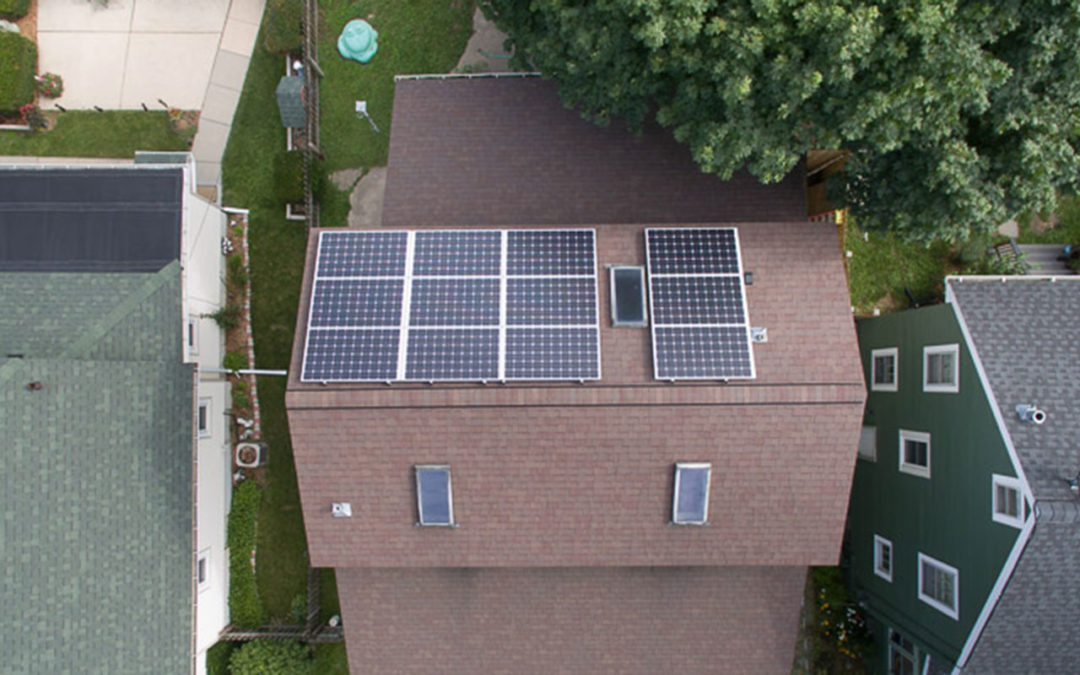
by Heather Allen | Jun 29, 2020 | Policy, RENEW Wisconsin, Solar, Utilities
An upcoming decision by the Federal Energy Regulatory Commission (FERC) has the solar industry, legislators, clean energy advocates, and state regulators extremely worried over the viability of solar power for homeowners and businesses.
The New England Ratepayers Association (“NERA”) has petitioned the FERC to take control over net metering policy for the entire country. If the petition is granted, states would lose the ability to set policy on solar electricity generated by utility customers. NERA’s petition has sparked widespread opposition from states, legislators, individuals and renewable energy businesses. Attorney Generals from 15 states, including Wisconsin’s own Attorney General Josh Kaul, submitted a protest in opposition to the petition.
What inspired 15 attorney generals, three governors, and state officials from across the political spectrum to engage in a federal energy policy debate?
For almost 40 years, states have had the authority to design and implement net metering policies. The NERA petition aims to reverse this long-standing precedent and eliminate Wisconsin’s ability to tailor utility net metering services to best fit local conditions.
What is net metering?
As defined by the Solar Energy Industries Association, net metering is a billing mechanism that credits PV system owners for the electricity they add to the grid. For example, if a residential customer has a rooftop PV system, it may generate more electricity than the home uses during daylight hours. If the home is net-metered, the electricity meter will run backwards to provide a credit against what electricity is consumed at night or other periods when the home’s electricity use exceeds the system’s output. The credit is set at the customer’s retail energy rate. Under this arrangement, customers are only billed for their “net” energy use. This practice enables utility customers who are producing their own electricity to decrease their electricity bills, and it is a powerful tool for driving investment in solar power.
What is at stake here?
According to the U.S. Energy Information Administration, Wisconsin has 3,879 residential net metering households, 874 commercial net metering customers, and 74 industrial net metering customers. These customers are at risk of increased electric bills with the potential loss of net metering.
In addition, the 2019 jobs data from Clean Energy Trust found that before the pandemic hit, Wisconsin employed over 3,798 solar installers as part of the statewide clean energy workforce. With less financial incentive for installing solar, these jobs and other clean energy jobs would be at risk if this petition is granted.
Net metering is good for everyone
RENEW Wisconsin joined other organizations in protesting this petition to wrest control of net metering away from states and put it in the hands of a federal agency. Our protest, authored by attorneys Dave Bender and Carter Hall of Earthjustice with clients Sierra Club and Vote Solar, includes explanations of the value of net metering policies for the electric grid. Here are some essential excerpts from the protest:
- Net metered facilities (such as solar) provide capacity value by avoiding otherwise required generation, transmission and distribution capacity.
- With net metering, solar has become an affordable option for almost everyone, not just high-wealth families. Net metering supports the increased use of distributed solar (such as solar arrays on the rooftop of a house or business), stimulating investment across communities while reducing the environmental and health impacts on low income communities and communities of color, who are disproportionately burdened by current forms of energy production.
- Solar installers operate in a competitive marketplace, driving down prices and passing savings onto consumers.
- Distributed solar has predictable energy production.
- Allegations of cross-subsidies are unfounded and overstated. Net metered customers often reduce their own loads and system loads during the cost-causing peak hours used to allocate costs of retail service, meaning they consume less of the fixed and demand services as measured by cost of service analysis.
Strong bipartisan support for state control of net metering
Millions of individual citizens and businesses across the country have made significant investments to generate their own electricity and have entered long-term contracts premised on the continuation of policies and programs regulated at the state level. Granting the petition would create enormous uncertainty and financial harm for our citizens and businesses at a time when they are already struggling with the economic impacts of the coronavirus.
More than 240 comments in opposition have been submitted to the FERC, and just five comments in support of taking away state control of net metering. Here are a few highlights:
Josh Kaul, Attorney General of Wisconsin said,
“Suddenly changing the rules on Wisconsinites who invested in clean energy for their homes is wrong and bad for the future of clean energy,” said AG Kaul. “The federal government shouldn’t be disrupting state programs that are good for the environment and help consumers save money.” 6/15/20
Frank Knapp Jr. CEO and President of South Carolina Small Business Chamber of Commerce said,
“…Net metering regulation properly resides with the states… We ask that the Commission reject the NERA petition. Moving it forward only serves the purpose of big special interests that find it easier to influence one group of federal commissioners rather than legislators, regulators and consumers in 50 individual states.” 6/11/20
Terry Kilgore, Virginia State Delegate (R-VA-1) wrote,
“This case would set two bad precedents. It would move us closer to nationalized electricity regulation and give more power to unaccountable federal bureaucrats. We, as Virginians, must oppose this and fight to make sure the authority to set energy policy stays vested with Virginia’s General Assembly.” 6/20/20
Net metering is in jeopardy. The petition, if approved, would take the state out of the picture in designing and preserving net metering as we know it. You can count on RENEW to keep working to ensure that net metering policies remain in the hands of our state regulators and are designed to fairly compensate residents and business that have installed renewable energy.
Make a donation today to support this work and all of the ways RENEW Wisconsin is protecting and advancing renewable energy in Wisconsin.
by Jane McCurry | Jun 24, 2020 | Electric Vehicles, Programs, Public Service Commission, Utilities
On Thursday, June 18th the Wisconsin Public Service Commission (PSC) unanimously approved Xcel Energy’s three pioneering electric vehicle (EV) programs. Xcel, whose western Wisconsin service territory includes Eau Claire, La Crosse and Ashland, proposed two residential programs in addition to a commercial pilot program, all intended to reduce the upfront cost of installing electric vehicle charging infrastructure. These programs will make it easier and more affordable for individuals and businesses to install electric vehicle chargers and commit to driving electric.
In 2014, Madison Gas & Electric’s Charge@Home electric vehicle pilot program was approved by the PSC. Charge@Home launched in 2016, and like Xcel’s programs, it aims to help with the obstacles of EV adoption. Xcel’s two residential programs mark the first time a full-fledged electric vehicle program has been approved in Wisconsin.
Residential Programs
Under both of the residential programs, Xcel will install and maintain ownership of a level 2 charger on the customer’s property, provided the customer owns an electric vehicle. Customers will have the option of paying more upfront coupled with a lower monthly fee through their “pre-pay” option, or taking a “bundled” approach and paying more per month while foregoing the upfront charge. While customers will end up paying back the cost of the system over time, Xcel’s ownership of the charger means the expense of upkeep and replacement (if necessary) will be paid for by Xcel.
Under one of the programs, the electric vehicle charger will meter the electricity used to charge the car, which will be billed on its own EV-only time-of-use rate.* This means that customers can take advantage of the cost savings of charging their EV using inexpensive electricity overnight without having to switch their whole house to a time-of-use rate or install a second meter.
The second residential program is for customers who have on-site solar generation or who already use a time-of-use rate. This program is patterned after the first, except that the electric vehicle charging will not be put on its own rate. The whole home, including the EV charging, will be billed at Xcel’s existing residential time-of-use rate.
Commercial Pilot Program
Xcel will also run a commercial electric vehicle pilot program. In this pilot, Xcel will be studying an alternative to current line extension* rules. The utility will help customers finance the cost of make-ready infrastructure* needed for EV charging stations, which includes all necessary electrical equipment to operate the stations. Customers will pay the utility back over time as they use more electricity to charge their cars. The commercial customer would also have the option of letting Xcel own the charging stations, not just the make-ready, in which case the customer would pay an additional monthly fixed fee. These options will help commercial customers bring down what can sometimes be a very high upfront cost to install make-ready and charging infrastructure.
It can be expensive to install the equipment needed to recharge electric vehicle batteries, especially in commercial settings. We commend Xcel for finding creative solutions to some of the upfront cost barriers to electric vehicle ownership and deployment. These programs give Wisconsin customers more options for affordable electric vehicle charging and we’re excited to see the PSC approve them.
LINE EXTENSION • When the utility needs to add new electrical infrastructure to get electricity to a customer meter, it’s called a line extension. There are costs associated with adding this infrastructure, and approved formulas that help the utility calculate which costs the customer will pay.
MAKE-READY INFRASTRUCTURE • All of the electrical equipment up to (but not including) the EV charger. This includes wiring, conduit, electrical panel upgrades, and any other equipment or upgrades that are needed to place a functioning EV charger in the location.
TIME-OF-USE RATE • A time of use rate means that the amount you pay for electricity changes depending on the hour of the day and the day of the week. Typically, that means you pay more during daytime hours on weekdays, when it’s more expensive for the utility to generate and deliver that power, and less at night and on weekends, when the cost of supplying electricity to customers is significantly lower.

by Jim Boullion | Jun 22, 2020 | Action Alert, Advocacy, Community, Electric Vehicles, Policy, Renewables, Solar
In October of 2019, Governor Tony Evers announced the formation of the Wisconsin Climate Change Task Force. Led by Lt. Governor Barnes, this bi-partisan group represents lawmakers, utilities, agriculture, environmental groups, health officials, and tribes with a goal of developing strategies to help Wisconsin reduce the effects of climate change and reach 100% carbon free electricity generation by 2050.
The Climate Change Task Force has been collecting ideas from various organizations and has worked hard to identify dozens of items that could be implemented. The next step is to hear from Wisconsin residents. The Governor, Lt. Governor, and Climate Change Task Force need your input and support to find the best path forward.
RENEW has identified three key issues that we feel would have the greatest impact and best chances for success. Join this important effort by signing your name in support of these initiatives!
Third Party Financing
Wisconsin should affirm the legality of third party financed distributed energy resources in order to provide equitable access to renewable energy benefits.
Electric Vehicle Infrastructure
Wisconsin should develop a comprehensive plan for transportation electrification.
Expand Focus on Energy
Wisconsin should facilitate the installation of more renewable energy and energy efficiency measures by expanding the Focus on Energy program.
If you have other ideas and would like to contribute more to the Climate Change Task Force, consider taking the following actions:
Provide written comments to the Task Force. Comments must be submitted by July 15th.
Provide live comments at the end of one of the remaining Task Force Subcommittee meetings.
Provide live comments during the Virtual Public Listening Sessions, which will be held on June 23, June 27, July 7, July 9 and July 15.
In August, the Task Force will review all of the comments they receive, and make their recommendations for the final report in September. The report is scheduled to be released on October 31, 2020.
If you have any questions, need more information, or would like help preparing for live comments, please contact Jim Boullion, RENEW’s Director of Government Affairs at jim@renewwisconsin.org or call at (608) 695-7004.
RENEW Wisconsin is a proud partner of Rise Up Midwest, a coalition effort led by MREA promoting renewable energy investment and grid modernization. Rise Up Midwest supports this petition and has highlighted their own policy priorities and programs to advance their mission.
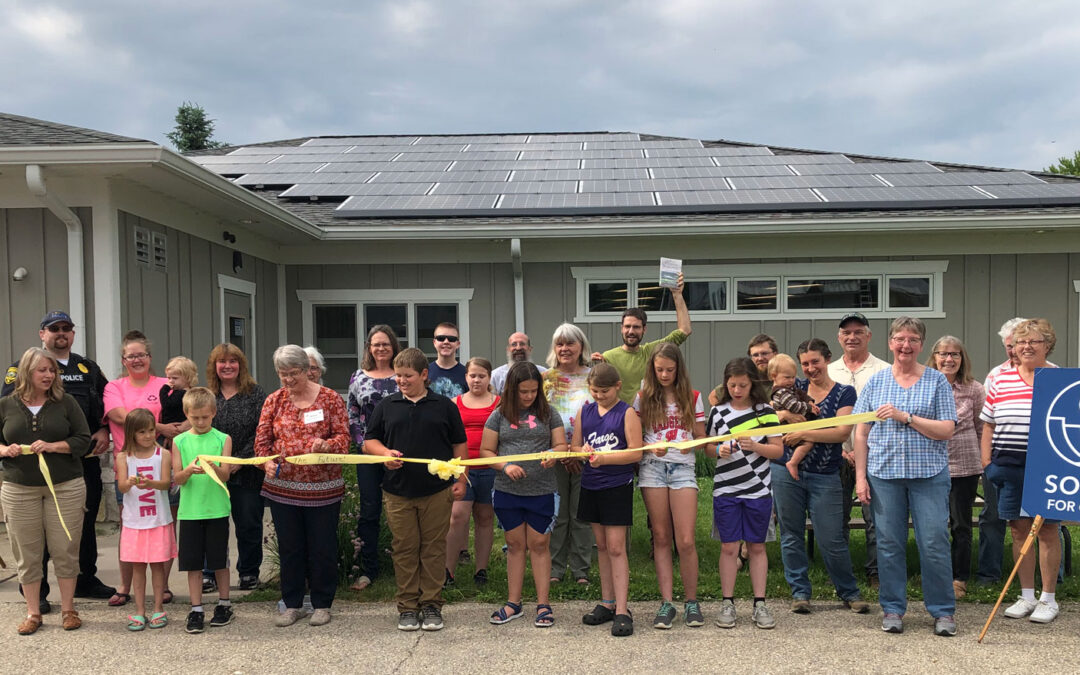
by Sam Dunaiski | Jun 19, 2020 | Local Initiatives, Solar, Solar for Good
RENEW Wisconsin’s Solar for Good program will issue over $150,000 worth of solar panels to Wisconsin nonprofits as part of their spring 2020 funding cycle. These grants will go to 10 organizations across the state that together will install 789 kilowatts of clean, renewable electricity. When completed, these solar projects will lead to nearly $1.8 million in renewable energy investments in Wisconsin.
The following organizations have been offered Spring 2020 Solar for Good grants to install new solar electric systems:
Aptiv Inc., provides support services for youth and adults with disabilities, La Crosse
Assumption Catholic Schools, pre-K to grade 12 private school, Wisconsin Rapids
Covenant Lutheran Church, house of worship, Stoughton
Dodge County Housing Authority, affordable housing provider, Juneau
Grace Congregational United Church of Christ, house of worship, Two Rivers
Green Bay Area Public School District, education, Green Bay
Four organizations have asked to remain anonymous at this time.
This round of Solar for Good grants features a diverse collection of awardees from across Wisconsin. The Green Bay Area Public School District will install a 14-kilowatt array on the Aldo Leopold Community School to educate their students and community about the benefits of solar electricity. A 55-kilowatt solar system will be installed in La Crosse at Aptiv Inc, which will allow them to fund more programs for adults with disabilities. And the Dodge County Housing Authority plans to install nearly 300 solar panels across 10 newly-constructed duplexes at the Oak Grove community in Horicon.
“Dodge County Housing Authority is thrilled to be installing solar panels on every unit at its new Oak Grove, Phase 2 affordable housing community,” said Donna Braun, Executive Director of Dodge County Housing Authority. “We decided to pursue solar panels at this new development because solar will allow our residents to see a significant reduction in their monthly electric bills. As all of the residents of Oak Grove, Phase 2 will be under 60% of the county median income, the electricity savings will make a big difference to these families.”
The 10 nonprofit organizations represent Solar for Good’s 6th funding cycle. This brings the collective impact of this program to 81 Wisconsin nonprofits installing 107 new solar arrays throughout the state. When the installations supported through this funding cycle are energized, Solar for Good will have added 4,030 kilowatts of clean, renewable power to Wisconsin’s electric mix, enough to power over 800 average-sized homes. In total, these solar projects represent more than $9 million of private investment in renewable energy capacity in Wisconsin.
About Solar for Good RENEW Wisconsin’s Solar for Good initiative fosters the expansion of solar power among mission-based nonprofits and houses of worship in Wisconsin. Through a generous partnership with Couillard Solar Foundation, RENEW Wisconsin awards solar panels to nonprofit organizations, helping them switch to clean, renewable, solar energy.
About RENEW Wisconsin RENEW Wisconsin is a nonprofit organization which promotes renewable energy in Wisconsin. We work on policies and programs that support solar power, wind power, biogas, local hydropower, geothermal energy, and electric vehicles. More information on RENEW’s website: www.renewwisconsin.org.
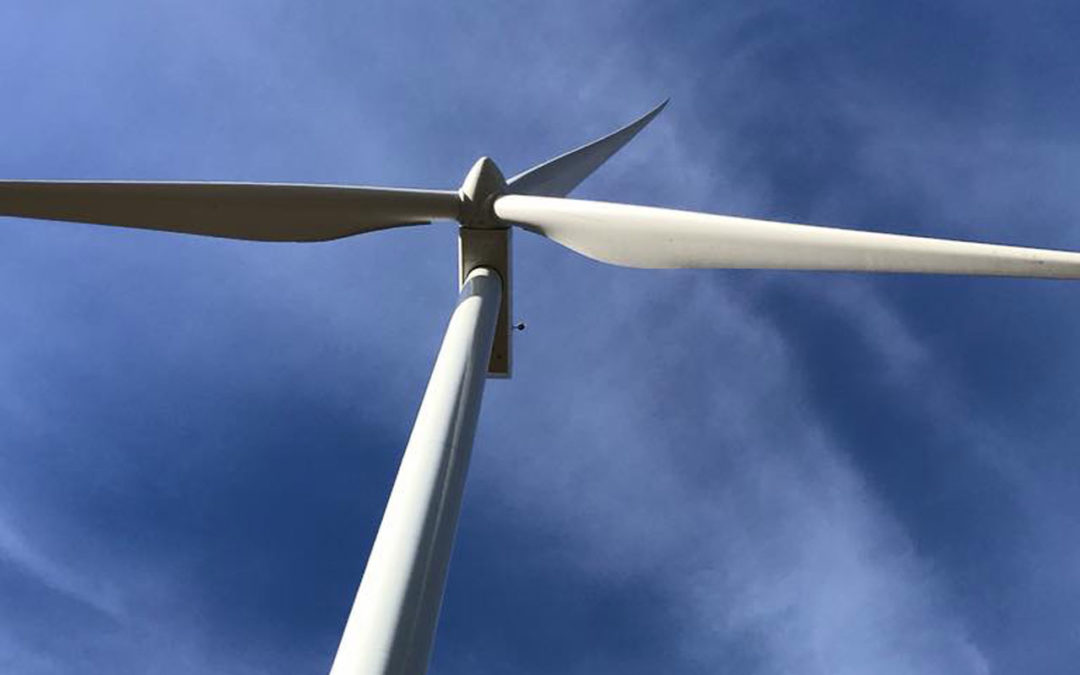
by Michael Vickerman | Jun 16, 2020 | Public Service Commission, Renewables, Utility Scale, Wind
In the first-ever test of the appeal process set forth in Wisconsin’s Wind Siting Rule (PSC 128), the Public Service Commission (PSC) reviewed and upheld Green County’s approval last fall of a 24-turbine, 65-megawatt (MW) wind project slated for development there. Following the county’s original decision, local wind farm opponents petitioned the PSC to invalidate the project’s permit, contending that the developer’s application was incomplete.
On June 11, the PSC denied the petition on a 3-0 vote, and in so doing removed the last remaining legal obstacle from the project’s path. As it stands today, the Sugar River wind farm is fully compliant with the standards set forth in the statewide rule relating to public health and safety, and may now proceed to construction.
Advanced by EDF Renewables, a nationally prominent renewable energy producer, Sugar River is capable of generating enough electricity to equal the consumption of 20,000 Wisconsin households. When operational, Sugar River will also yield about $260,000 in annual revenues, with nearly $152,000 going to Green County and more than $108,000 to the Town of Jefferson. Before ground can be broken, however, EDF will need to either sign a power purchase agreement with an off-taker or agree to sell the wind farm to an electric provider when construction is complete.
Sugar River was one of the first two wind energy proposals in 2019 to go through the local government review process specified in PSC 128. The other proposed wind farm, the 99 MW Red Barn project in Grant County, secured a conditional use permit in July 2019. No appeal of Grant County’s decision was filed. Like Sugar River, Red Barn is expecting to begin operation in the second half of 2021, assuming a partnership has been forged with an electric provider.
Sugar River provided the first significant test of PSC 128 after the rule narrowly survived a repeal vote during the 2011-2012 legislative session. The rule establishes a mechanism whereby a citizen group or a development company may challenge a local government decision on a proposed wind farm. Under this appeal process, the PSC’s role is to ascertain whether the local government adhered to all the standards and procedures in rendering a decision on a wind farm proposal.
In the case of Sugar River, the PSC agreed to take up the appeal filed by No Green County Wind in October 2019. Before rendering its decision, the PSC invited interested parties to submit comments on the matter. In its comments, RENEW expressed its support for the Sugar River project, as well as the regulatory framework that allowed the project to be given a fair hearing at every step of its permitting journey. The PSC plans to issue a written decision in July.
The approvals of Sugar River and Red Barn signal the end of a protracted lull in wind development activity lasting from 2011 to 2017. Between an adverse political environment and a glut of generating capacity, wind energy development stalled in Wisconsin. During the dry spell here, developers flocked to greener pastures in neighboring states. The door reopened slightly when Dairyland Power Cooperative agreed to purchase electricity generated from Quilt Block Wind Farm, which started operating in November 2017.
Though local opposition to wind development remains very much alive today, the experience with Sugar River attests to the strength and durability of Wisconsin’s Wind Siting Rule, which foretokens brighter days for the wind power industry here.
To learn more about the Sugar River Wind Farm, visit these previous blog posts.
PSC affirms local approval of Sugar River Wind Farm
Local Residents Discuss Wind Energy in Wisconsin
A Scientific Look into Wind Power and Human Health







